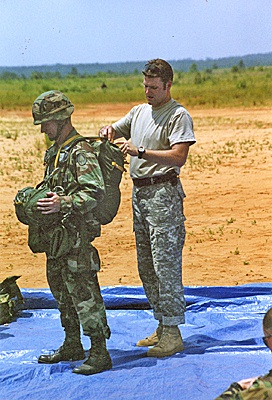All Nonfiction
- Bullying
- Books
- Academic
- Author Interviews
- Celebrity interviews
- College Articles
- College Essays
- Educator of the Year
- Heroes
- Interviews
- Memoir
- Personal Experience
- Sports
- Travel & Culture
All Opinions
- Bullying
- Current Events / Politics
- Discrimination
- Drugs / Alcohol / Smoking
- Entertainment / Celebrities
- Environment
- Love / Relationships
- Movies / Music / TV
- Pop Culture / Trends
- School / College
- Social Issues / Civics
- Spirituality / Religion
- Sports / Hobbies
All Hot Topics
- Bullying
- Community Service
- Environment
- Health
- Letters to the Editor
- Pride & Prejudice
- What Matters
- Back
Summer Guide
- Program Links
- Program Reviews
- Back
College Guide
- College Links
- College Reviews
- College Essays
- College Articles
- Back
War: How Soldiers Live the War by Sebastian Junger
The book War, by Sebastian Jungers allowed for an amazing look into the true life of a U.S. soldiers fighting on the front lines. After reading this book I decided I would base my evaluation on seven different ideals: clarity, escape, reflection of real life, artistry in detail, internal consistency, personal beliefs, and significant insight.
I first noticed the author’s use of artistry in detail. I saw this through his use of drawn out, in-depth descriptions, which allowed me to picture the events unfolding in the book, as if I were there. It allows you to experience what only certain people have experienced, as well as emotionally feel what was going on through the times of struggle. This ties into why the book offers a great reflection of real life. The author was able to use this because of how closely his life mirrored that of the soldiers; he ate what they ate, slept where they slept, he went out on patrols with them, and he was even shot at with them. This reflection also leads into the ideal of an escape from reality. When you read this book, you feel like you are in another world. I would often find myself thinking how there was no way our troops were in such hostile conditions. The author uses his personal beliefs when he ponders on the fact that most troops actually want to return to combat after returning to life stateside. He answers his own question through significant insight, talking about how the camaraderie, adrenaline rush, and stress causes a chemical reaction in the brain, which in turn causes a high for the soldier; this makes war addicting.
The book was a great read, and I encourage everyone who likes non-fiction to read it. It is captiva1ting and fast paced. I should warn you that it is lacking in the ideals of: clarity, and internal consistency. While reading I noticed that the book doesn’t follow much of a chronological order, however this is the case with most journalistic books, however the book makes up for it greatly through the other five ideals. I enjoyed this book and I hope you do too.

Similar Articles
JOIN THE DISCUSSION
This article has 0 comments.
